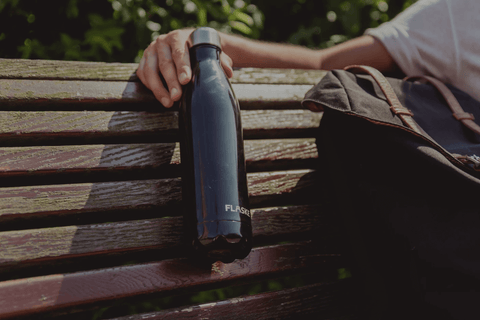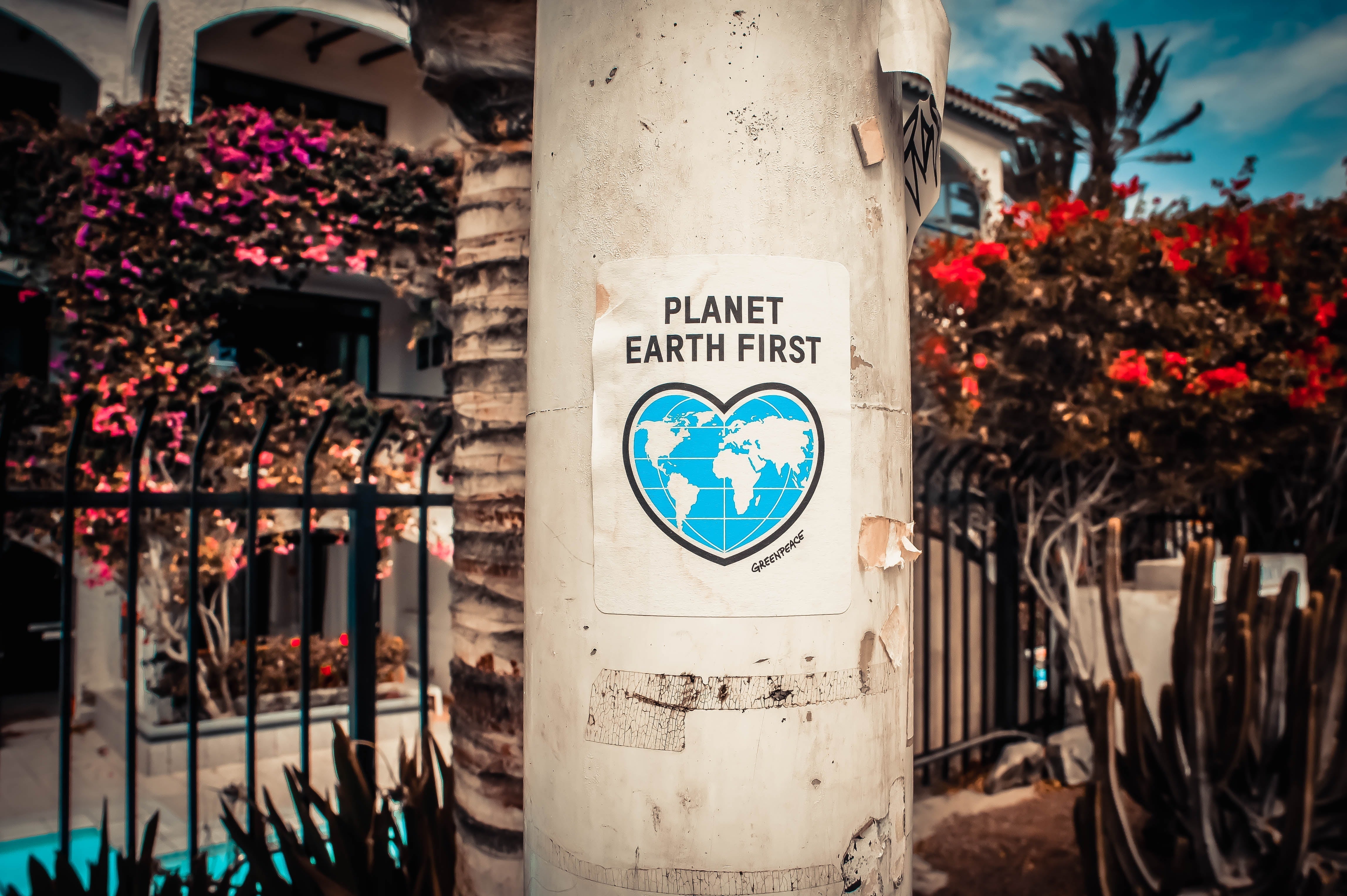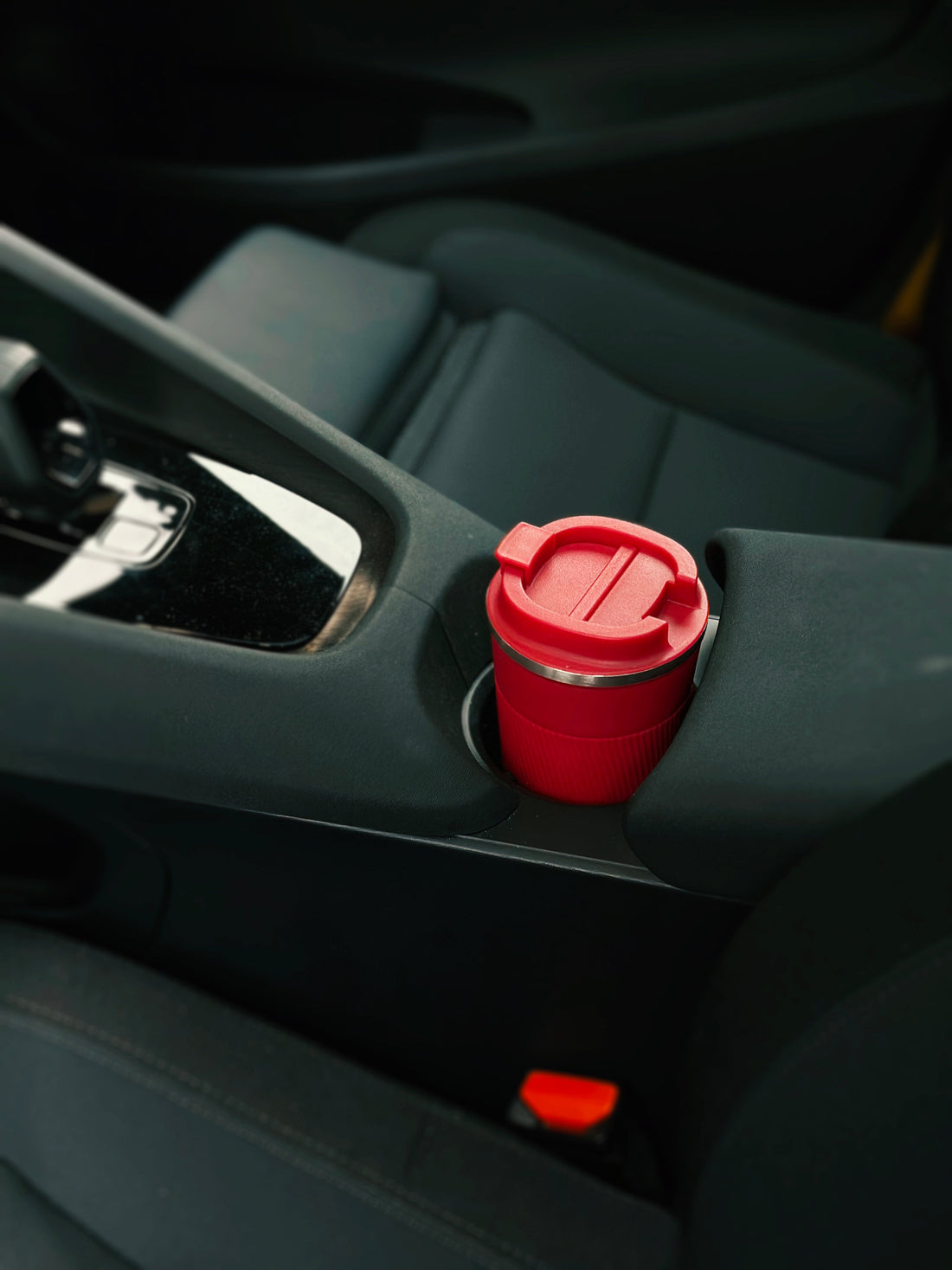
Reduce Waste
1. Buy a reusable bottle

In the time it takes to write this, millions of plastic bottles will have been produced and purchased. More than one billion per day will be sent to landfill sites or pile up in the Great Pacific garbage patch. Stop tons of plastic bottles from polluting the oceans just by purchasing one durable and reusable water bottle.
2. Take shorter showers
Save water and save money on sustainability by taking shorter showers. Try making your showers short and fun with a fast-paced and energising tune.
3. Print less
These days documents rarely need to be printed so set up a paperless practice at work and home. Download travel tickets to your smartphone, share photos digital photo albums, and email documents to colleagues rather than printing.
Read Also: Best Reusable Water Bottle
4. Fix before replacing
In western society, we tend to throw things out rather than fixing the one part that’s broken. Next time something breaks, take it to a repair shop, buy a tube of glue, or find a creative way to upcycle.
5. Ditch trash bags
As you reduce waste, you’ll find that you have less trash anyway. Skip the trash bags and spend five minutes cleaning your kitchen bin once a week.
6. Reuse everything
If you bought a jar of jam from the supermarket, don’t throw it out when it’s empty. Wash it and use it to store dry foods, coins, or leftovers.
Also Read: Not Sure About Buying A Reusable Travel Coffee Mug?
7. Make your lunch at home
Store-bought meals are usually wrapped in plastic and they're not that tasty or healthy anyway. Reduce waste by preparing lunch at home and taking it to school or work in a stylish food flask.
Think Before You Buy
8. Support sustainable companies
Several companies choose to put environmental responsibility above profits by supporting environmental projects, adopting green practices, selling carbon-neutral products, or gifting sustainable corporate gifts.
9. Buy recycled products
Producing products from recycled materials is less energy and resource-intensive. Often pens and paper, including toilet paper and tissues, are made from recycled fibres but you can also find clothing, containers, and other items when you shop for eco-friendly products.
Also Read: 10 Sustainable Secret Santa Gifts That Will Surprise
10. Gift sustainable or zero-waste gifts
No more novelty gifts that entertain for a few hours before getting thrown in the trash. Instead, treat your loved one to an experience, a day out or a homemade meal, instead of a physical gift.
11. Buy second-hand
We can significantly reduce our carbon footprint buying second-hand. This is especially trying when it comes to clothing. Our current demand for throwaway fashion requires a huge amount of natural resources, not to mention energy for production and export. Because buying second hand extends the life of existing materials and products, it’s even more green than buying something new from a sustainable company.
WRAP UK said - “Re-use and recycling offer some carbon savings because the lifetime of clothing that is re-used or recycled is extended. Where this displaces a sale of a new garment,10 the effects on the environment from fibre extraction and processing are avoided.”
12. Look out for biodegradable and compostable packaging
Sometimes buying containers is unavoidable but you can still help the environment by buying products that come in biodegradable or compostable packaging.
Also Read: Stay Hydrated: Refill A Reusable Water Bottle
Drive less
13. Cycle or walk more

Help the environment by cycling or walking to work, school, or into town instead of driving. It will count towards your daily exercise and we could all benefit from more fresh air anyway.
14. Carpool or use public transport
If your work or school is too far to walk or cycle to then use public transport or carpool. Both options will have a positive environmental impact compared to driving a private vehicle.
15. Work from shared offices or public spaces.
Do you work remotely or freelance from a home office? That helps to reduce transport emissions but air conditioning and heating also harm the environment. When possible, work from a shared office, public library, or a laptop-friendly café.
Also Read: 5 Ways to Promote Your Brand with Custom Water Bottles
Dispose of Waste Responsibly
16. Upcycle
One man's trash is another man's treasure. That’s the ethos behind upcycling. Take a look at your trash and create something new. Bottle tops are perfect candle moulds, old suitcases make retro chairs or coffee tables, and what about turning a disposable plastic bottle into a trendy lampshade.
17. Recycled responsibly
Make sure that you're aware of your local recycling facilities. Putting something an unwashed container or non-recyclable materials into the recycling bin can contaminate the entire batch.
18. Store your leftovers
Stop throwing out leftover foods. Instead, store them in a food-safe container, freeze for weeks, or enjoy for lunch the next day.

Invest in Sustainable Products
19. Use eco-friendly cleaners
Most commercial cleaners are packed with chemicals that are highly efficient but toxic to the environment and wildlife. These cleaning products end up in the ocean eventually. Help keep waterways clean by investing in eco-friendly cleaning products made from non-toxic, natural, and biodegradable ingredients.
Also Read: Stainless Steel vs Plastic: What Is The Best Type Of Water Bottle?
20. Use plastic-free toiletries
Solid shampoos, conditioners, zero-waste deodorants, and powdered toothpaste eliminate plastic waste. This is just one simple swap for a zero-waste bathroom.
21. Carry reusable shopping bags
Non-biodegradable plastic bags block waterways and cause pollution and yet they’re available in every store. When you go to the grocery store remember to bring a washable shopping tote and reusable produce bags.
22. Energy-efficient appliances
Invest in home appliances and electronics that are energy-efficient or have an energy-saver setting. You should also unplug appliances while not in use to save more energy.
Also Read: Consider Reusable Water Bottles as Eco-Friendly Corporate Gifts
23. Avoid excess packaging when shopping online
Unless you’re buying from an eco-friendly online store you online purchase will probably come with excess plastic packaging. Avoid this by making less online purchases. Either wait until you’re ready to buy a few items in a combined order or shop for individual items in your local store.
Involve the Community
24. Start a beach clean-up
Saving the planet is an international effort, not an individual activity. Get support from your neighbours and support The Ocean Cleanup by organising a community litter pick in your neighbourhood.
25. Start composting
Composting is easy when you have your garden but a little tricky if you live in an apartment block. Get around this issue by organising a communal compost bin for all the residents in your building or speak to the local authority about composting in an urban park.
Also Read: Why We Support The Plastic Soup Foundation
26. Collect trash for Terracycle
In theory, everything is recyclable but most recycling facilities are not equipped to recycle all materials. Terracycle takes the waste that our regular recycling facilities can’t. Contribute to one of the Terracycle free recycling programs or register your company for a zero-waste box.

Doing your part to become more sustainable and help the environment is not as difficult as you think. Let’s see how many of these 26 tips you can implement in your daily life.



